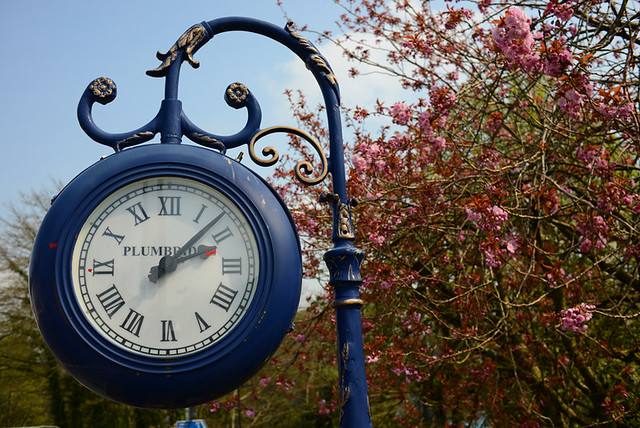A brevet is not a race. This is a thing that randonneurs are ever eager to remind us of, a fact that they repeat with conviction - particularly when enticing newcomers. And technically it is true. We are given a time limit to complete a brevet, and on the surface the time allotted seems plentiful: If we pace ourselves and make a reasonable effort, we can enjoy the scenery and the camaraderie, even grab a meal or two. But no matter how we spin it, a brevet is not a leisure ride and it's not a tour; it is not a free-form meander or a spontaneous frolic. It is a timed event that requires strict adherence to a route. The map is our indispensable guide. And the clock is our constant companion.
Doing a ride on the clock is an altogether different experience from cycling that is not timed. On the clock, things have a way of coming into sharper focus. The present attains a simplicity and clarity; it becomes more concentrated. What's in front of us and inside us reveals itself in the finest of detail, the periphery fading away. We discover things about our bicycles and bodies that surprise us, even if we're far from novice cyclists. We gain new insights into our speed, strength, style of cycling, energy fluctuations, nutritional needs, even our moods and our character.
Why does the presence of a timer, a self-imposed stressor, do these things to us on a bicycle ride? Because we're human. It is really no more complicated than that. And it's what makes randonneuring challenging, exciting, frustrating, fulfilling and addictive.
I began this summer with a 300K brevet and will probably do a couple others, same distance or shorter, in the near future. But inherent to randonneuring is the pressure to "advance" to longer distances, making such a plan seem rather unambitious. What about a 400K? If I did a 300K out of the gate, surely I am ready to try the next distance.
Giving this some consideration, I thought again of my companion the clock. Based on the 300K and on self-timed rides I've done before it and after, I know that my overall average (not to be confused with rolling average) over long distances with significant climbs is around 10.5mph. That's above the roughly 9.5mph minimum required to complete a brevet. But it's not enough to relax and enjoy myself on these events. It also means that I spend way more time on the bike over a given distance than a speedier cyclist - creating more opportunities to develop fatigue, aches and pains, and various other problems - physical, mechanical, and logistical.
Consider, for instance, cycling in the dark. A rider fit enough to complete a summertime 300K in sufficiently few hours to finish before dusk will not have to deal with the issue at all. A rider who is not, will face this extra challenge. Same goes for sleep deprivation on the longer distance brevets.
According to some seasoned randonneurs I've talked to lately, the 400K is a pivotal distance precisely for that reason. Compared to the shorter brevets, it is new territory. A make you or break you distance. A wild card. And much will depend on the rider's fitness, on how many hours those 250-odd miles will translate to.
Mary of Chasing Mailboxes describes a 400K she recently completed on tandem, in 20 hours. It's a number that made me want to cry and laugh simultaneously, reminding me of just how great the discrepancy between myself and most randonneurs I encounter truly is. Mary's performance means that, purely time-wise, her 400K experience was more like my 300K, which I completed in 18 hours 45 minutes. Can I handle a brevet where I'm on the bike 1 hour and 15 minutes longer than the longest time I've spent on the bike so far? Yes, I think I can. But realistically, a 400K is likely to take me 25 hours and I'm not sure my body and mind can handle all that time on the bike quite yet. I'd like to try a 400K some day, but I'd rather do it when I'm fit enough to complete it within a shorter timespan.
When cyclists discuss their readiness to handle a particular brevet, I notice they tend to speak solely in terms of distance. But as I dip my toe deeper into the murky waters of randonneuring, I come to feel that thinking of it in terms of time makes at least as much sense. The clock is my constant companion, and it does not let me forget.





0 comments:
Post a Comment